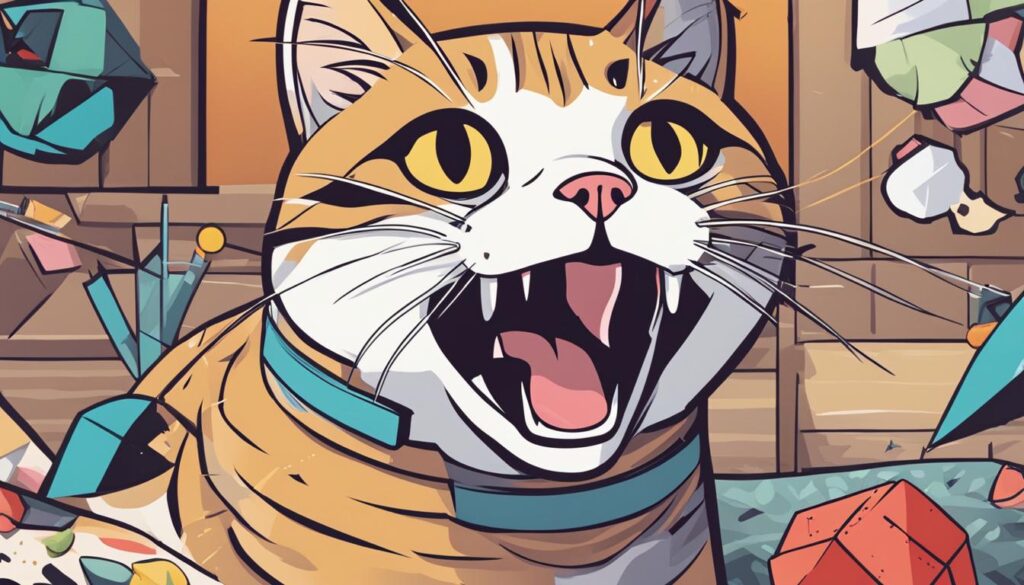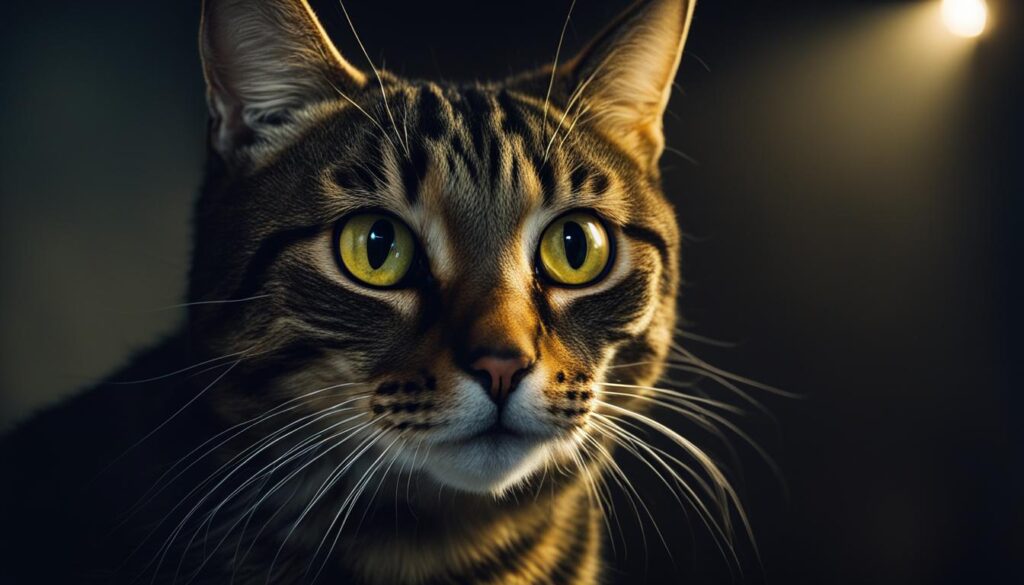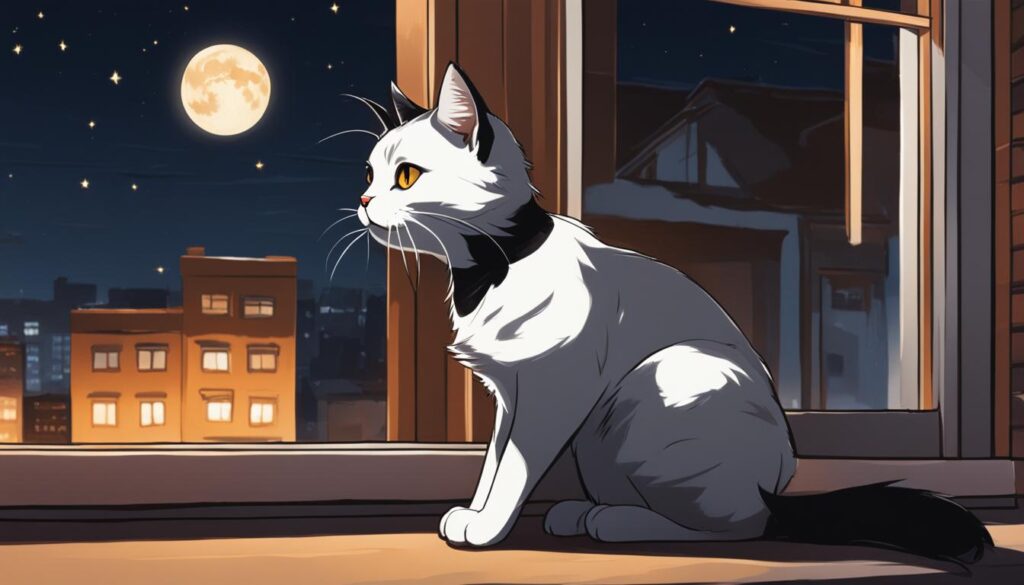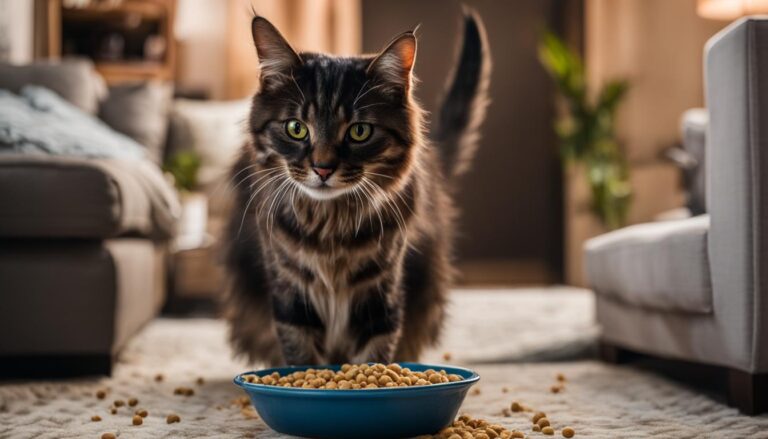Cats are known for their unique ways of communication, and meowing is one of their primary methods to express themselves. While some cats are naturally more vocal than others, excessive meowing can indicate underlying issues that need attention. By understanding the reasons behind your cat’s excessive meowing, you can provide the necessary care and address any potential problems.
Meowing can be a way for cats to communicate various needs and emotions. It can signify hunger, a desire for attention, or a way to communicate pain or discomfort. As cats age, they may become more vocal due to factors such as age-related dementia or deteriorating eyesight. Monitoring your cat’s behavior and meowing patterns is crucial for determining if there are any changes that require further attention. If necessary, consulting a veterinarian is essential to ensure your cat’s well-being.
Hal-hal Penting yang Dapat Dipetik
- Excessive meowing in cats may indicate underlying issues that need addressing.
- Cats may meow excessively due to hunger, seeking attention, or pain/discomfort.
- Environmental factors and certain cat breeds can contribute to increased vocalization.
- Reducing excessive meowing can be achieved through providing basic needs, mental stimulation, and establishing a consistent routine.
- Unusual meowing may indicate specific health concerns that require veterinary attention.
Reasons for Excessive Meowing in Cats
Excessive meowing in cats can be a cause for concern, as it may indicate underlying issues or unmet needs. Cats may meow all the time, too often, or nonstop for various reasons. It is essential to understand the potential reasons behind this behavior to address the root cause and provide appropriate care and attention.
One common reason for excessive meowing is health issues. Cats may vocalize excessively when they are in pain or discomfort, such as when they have urinary problems, kidney disease, or hyperthyroidism. It is crucial to monitor your cat’s overall health and seek veterinary advice if you suspect any underlying medical conditions.
Another reason for excessive meowing is attention-seeking behavior. Cats are intelligent animals and may meow excessively to get your attention or initiate playtime. It is important to provide regular interactive play sessions and mental stimulation to keep your cat engaged and reduce attention-seeking meows.
Environmental factors can also contribute to excessive meowing. Cats may meow more frequently if they are stressed, lonely, or bored. Ensuring a stimulating and enriched environment for your cat, with toys, scratching posts, and hiding places, can help alleviate boredom and reduce excessive vocalization.
Table: Common Reasons for Excessive Meowing in Cats
| Reason | Deskripsi |
|---|---|
| Health Issues | Urinary problems, kidney disease, hyperthyroidism |
| Attention-Seeking Behavior | Seeking attention or playtime |
| Environmental Factors | Stress, loneliness, boredom |
Understanding the specific reason behind your cat’s excessive meowing is crucial for providing the appropriate care and addressing any underlying issues. By observing their behavior, consulting with a veterinarian, and ensuring a stimulating and supportive environment, you can help your cat lead a happier and healthier life.
How to Stop Your Cat from Meowing Excessively
If your cat is constantly meowing, it can be frustrating and concerning. Fortunately, there are several strategies you can try to reduce excessive meowing and address any underlying issues. Here are some tips to help you stop your cat from meowing too often:
1. Meet Their Basic Needs
Ensure that your cat’s basic needs are consistently met. Provide them with fresh food and water, and make sure their litter box is clean and accessible. Cats may meow excessively if they are hungry, thirsty, or need to use the litter box.
2. Engage in Regular Playtime
Playtime is crucial for cats to release energy and stimulate their minds. By engaging in interactive play sessions with your cat using toys, you can help alleviate boredom and reduce attention-seeking meows. Aim for at least two play sessions per day, each lasting around 10-15 minutes.
3. Ignore the Meowing
When your cat meows excessively for attention, it can be tempting to give in and provide them with the desired attention. However, this can reinforce the behavior. Instead, try to ignore the meowing and only give attention when your cat is calm and quiet. This will teach them that excessive meowing will not get them what they want.
4. Establish a Consistent Routine
Cats thrive on routine, so establishing a consistent daily schedule can help reduce anxiety-related meowing. Stick to regular feeding times, play sessions, and bedtime routines. By providing a predictable and stress-free environment, you can help calm your cat and reduce excessive vocalization.
Remember, each cat is unique, so it may take time and patience to discover what works best for your feline friend. If your cat’s excessive meowing persists despite your efforts, it is advisable to consult with a veterinarian. They can help identify any underlying medical issues or provide additional advice on managing your cat’s vocalization.

Understanding Unusual Meowing in Cats
Unusual meowing in cats can be a cause for concern and may indicate specific needs or health concerns. Cats use meowing as a way to communicate with their owners, but when their meowing becomes unusual or abnormal, it is important to pay attention and investigate further.
One possible reason for unusual meowing is pain or discomfort. Cats may meow differently if they are experiencing physical pain or discomfort, such as from an injury or underlying health condition. It is essential to monitor their meowing and observe if there are any other signs of distress or changes in behavior.
Urinary issues and kidney disease can also be potential causes of unusual meowing in cats. Cats with these conditions may experience discomfort or difficulty urinating, leading to changes in their meowing pattern. If you notice any changes in your cat’s litter box habits or urine output, it is important to consult a veterinarian for a proper diagnosis and treatment.
“Changes in a cat’s meow, such as a hoarse sound, can be a sign of an upper respiratory infection or other underlying health conditions.”
Older cats with cognitive dysfunction, also known as feline cognitive dysfunction (FCD) or cat dementia, may also exhibit excessive and persistent meowing. This condition can cause confusion and disorientation in cats, leading to increased vocalization. It is crucial to provide a calm and comforting environment for cats with FCD and consult a veterinarian for guidance on managing their condition.
| Causes of Unusual Meowing in Cats | Signs and Symptoms |
|---|---|
| Pain or discomfort | – Changes in behavior – Lethargy – Loss of appetite |
| Urinary issues and kidney disease |
– Changes in litter box habits – Increased or decreased urine output – Straining during urination |
| Feline cognitive dysfunction | – Confusion and disorientation – Increased vocalization – Changes in sleep patterns |
In conclusion, unusual meowing in cats should not be ignored. It is important to monitor your cat’s meowing patterns, observe any changes in behavior or other accompanying symptoms, and consult a veterinarian for proper diagnosis and treatment. Understanding the underlying cause of the unusual meowing is crucial for providing appropriate care and addressing any potential health issues.

Nighttime Meowing in Cats
Many cat owners have experienced the frustration of their feline companion meowing excessively at night. This behavior can disrupt sleep and leave you wondering why your cat is so vocal during nighttime hours. Understanding the reasons behind nighttime meowing can help you address the issue and restore a peaceful sleep environment for both you and your cat.
One common reason for nighttime meowing is boredom or the desire for attention. Cats are naturally nocturnal creatures, and the silence and lack of activity at night can make them feel restless. They may use meowing as a way to signal their need for playtime or interaction. Providing your cat with regular mental and physical stimulation during the day, such as interactive toys or play sessions, can help reduce their need for attention at night.
Another possible cause of nighttime meowing is hunger. Cats have smaller stomachs and faster metabolisms, and they may become hungry during the night. Ensuring that your cat has a satisfying meal before bedtime can help alleviate nighttime hunger and reduce their tendency to meow for food.
If your cat’s nighttime meowing persists or is accompanied by other signs of distress, it is important to consult a veterinarian. Underlying health issues such as pain, discomfort, or anxiety can contribute to excessive vocalization at night. A veterinarian can evaluate your cat’s overall health and provide appropriate treatment or advice to address any underlying issues.
| Possible Reasons for Nighttime Meowing | How to Address the Issue |
|---|---|
| Boredom or the desire for attention | Provide regular mental and physical stimulation during the day |
| Hunger | Ensure your cat has a satisfying meal before bedtime |
| Pain, discomfort, or anxiety | Consult a veterinarian for a thorough evaluation |
By understanding the reasons behind your cat’s nighttime meowing and taking appropriate steps to address them, you can help create a more peaceful and restful nighttime environment for both you and your feline friend.

Why Do Cats Meow at Night?
Cats are naturally active creatures, and nighttime provides them with an opportunity to explore and engage in hunting behaviors. Meowing at night can be a way for cats to express their desire for attention, playtime, or food. Some cats may also meow at night out of habit, having learned that meowing results in getting what they want. Understanding your cat’s individual needs and providing appropriate outlets for their energy and stimulation can help reduce nighttime meowing.
Kesimpulan
Excessive cat meowing can be a cause for concern, but it’s important to understand that it can indicate various needs or issues. By paying attention to your cat’s behavior and vocalizations, you can better understand their unique needs and provide appropriate care.
Meowing is a way for cats to communicate their hunger, seek attention, or express pain or discomfort. It’s crucial to observe any changes in behavior or meowing patterns and consult a veterinarian if necessary to ensure your cat’s well-being.
Remember, each cat is different, and understanding their individual needs and communication style is essential for a harmonious relationship. By addressing basic needs, providing mental stimulation, and seeking professional advice when needed, you can help alleviate excessive cat meowing and create a happy and healthy environment for your feline companion.




